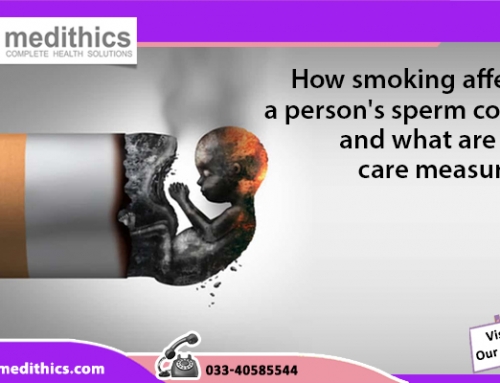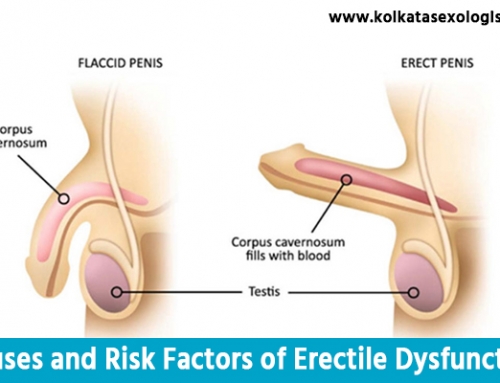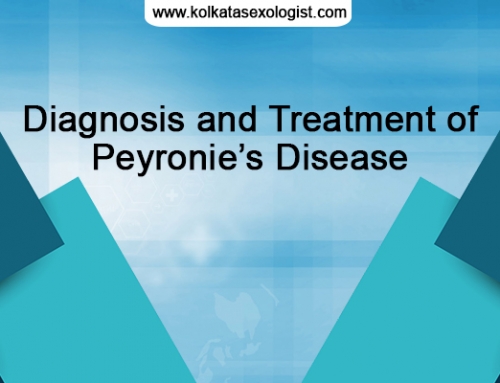Symptoms
The inability to delay ejaculation for more than one minute after penetration is the main symptom of premature ejaculation. However, in all sexual situations including masturbation, this problem may occur.
Premature ejaculation can be classified as:
Lifelong (primary). Nearly all of the time beginning with your first sexual encounters, lifelong premature ejaculation occurs.
Acquired (secondary). After you’ve had previous sexual experiences without ejaculatory problems, acquired premature ejaculation develops.
Causes
What exactly causes premature ejaculation is unknown. It was once thought that the cause is only psychological, but now sexologist doctors have the knowledge that a complex interaction of psychological and biological factors is involved in premature ejaculation.
Psychological causes
The following psychological causes play an important role:
- Early sexual experiences
Sexual abuse
Poor body image
Depression
Worrying about premature ejaculation
Guilty feelings that increase your tendency to rush through sexual encounters
There are also many other factors which play a role in it. They are:
Erectile dysfunction. There is a tendency among many men who are anxious about maintaining an erection during sexual intercourse. This tendency is to form a pattern of rushing to ejaculate, which can be difficult to change.
Anxiety. There are problems also with anxiety among many men with premature ejaculation. These problems may either be specifically about sexual performance or related to other issues.
Relationship problems. If premature ejaculation happened infrequently or not at all during satisfying sexual relationships with other partners, it may be possible that the problem is caused because of interpersonal issues between you and your current partner.
Biological causes
There are a number of biological factors that might contribute to premature ejaculation. They include:
Abnormal hormone levels
Abnormal levels of brain chemicals called neurotransmitters
Inflammation and infection of the prostate or urethra
Inherited traits
Diagnosis
Your doctor will ask you about your health history, your sex life and might do a physical exam. Your doctor might order blood tests to check your male hormone (testosterone) levels or other tests if you have both premature ejaculation and trouble getting or maintaining an erection. You might also be suggested by your doctor to go to a urologist or a mental health professional in some cases.
Treatment
Behavioral techniques, topical anesthetics, medications and counseling are some common options for premature ejaculation treatment. It must be kept in mind that finding the treatment or combination of treatments that will work for you may take time. The most effective course may be behavioral treatment along with drug therapy.
Behavioral techniques
Pelvic floor exercises
Your ability to delay ejaculation might be decreased by weak pelvic floor muscles. These muscles can be strengthened by pelvic floor exercises.
To perform these exercises:
Find the right muscles
Perfect your technique
Maintain your focus
Repeat 3 times a day
The pause-squeeze technique
In the course of normal sexual activity, when you feel the urge to ejaculate, make your partner to squeeze the end of your penis at the joining point of the head (glans) and the shaft for several seconds until the urge to ejaculate go away. You can reach the point of entering your partner without ejaculating by repeating as many times as necessary. If pain or discomfort is caused by this technique, there is the stop-start technique which involves stopping of sexual stimulation just prior to ejaculation, waiting until the decrease of arousal and again begin.
Condoms
Penis sensitivity might be decreased by condoms and this can help in the delay of ejaculation.
Medications
Topical anesthetics
Oral medications
Antidepressants. Delayed orgasm is a side effect of certain antidepressants
Analgesics. Delayed ejaculation is a side effect of Tramadol (Ultram), a medication commonly used to treat pain.
Phosphodiesterase-5 inhibitors. Premature ejaculation might be decreased by the help of some medications used in the treatment of erectile dysfunction
Counseling
Talking with a mental health provider about your relationships and experiences is involved in counseling. It is more likely to help when used in combination with drug therapy.





